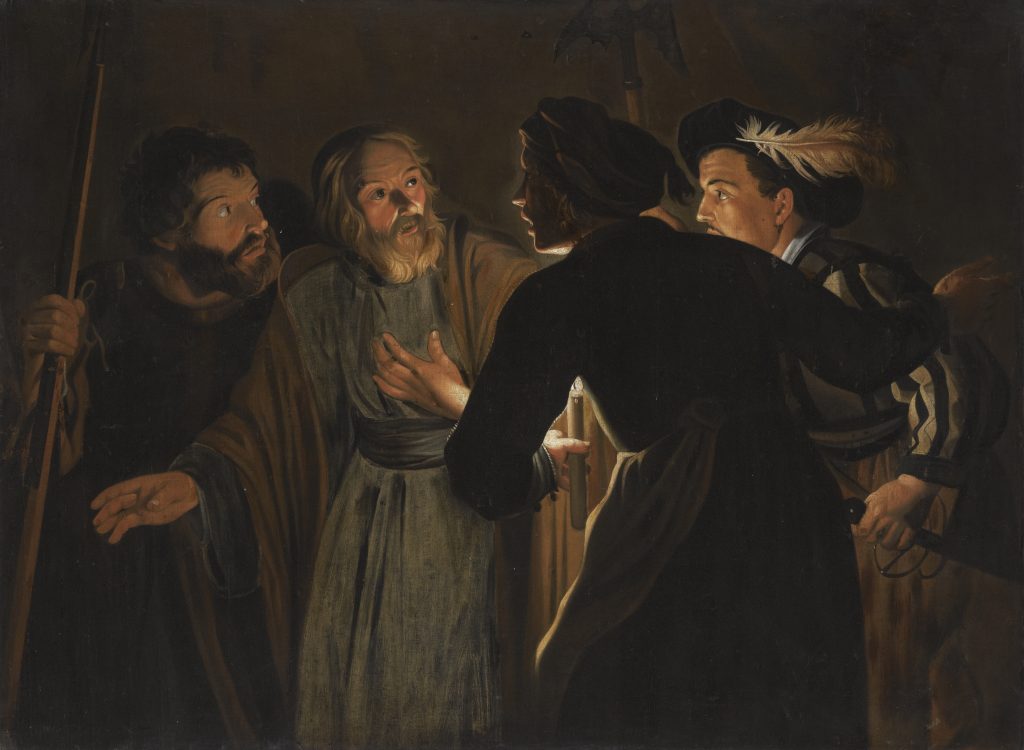
There are lessons in serving the kingdom of God that we can gather from the lives of those who chose to learn about the Christ more intimately, especially those who knew him as Jesus, the itinerant prophet who proclaimed a unique message of divine salvation at a critical juncture in human history.
One such person was Simon bar Jonah of Bethsaida, who ran a fairly successful fishing boat business with his brother Andrew, in partnership with Zebedee and his two sons, James and John. They were followers of John the Baptist when as the Gospel narrative tells us, they were prompted by the Spirit through John, to continue their discipleship with Jesus.
Simon would later be known as Cephas among the Jews, or Peter among the Gentiles, which means “Rock,” a reference to him as the undisputed foundation of the movement dedicated to remembering and propagating the teachings and example of Jesus. He would also be claimed as the legitimate head of all who initiated, and of all who to this day are progressively elaborating upon the perpetual worship of Jesus as the Christ.
But what kind of servant was Peter?
The evangelists seem to agree that Peter was a person who by nature, was deeply loyal and pious. Though he may be a man who in his youth, appears to be rough and impulsive, he was undeniably capable of bringing his whole heart to bear upon his faith, a servant of genuine faithfulness.
Unlike what many of us may think of him, he was an educated Jew, who was inquisitive and outspoken. When fully aware of the correctness of his professed beliefs, he maintained a very strong level of conviction and courage, bordering on a fragile lack of temper and judgment. Through the eyes of Luke, he has proven himself to be an effective persuader, attracting “thousands” to the “Way” of Jesus, and a stoic apostle who experienced joy in being persecuted for actions performed in the name of his faith.
However, he also appears to be a disciple who throughout his life, struggled with serious doubt about the correctness of his decision to leave his lucrative livelihood for a religious mission that makes no promises for any short-term gains. Most likely on several occasions, he was tempted to totally deny or abandon his faith, especially during the internal dispute he witnessed in the early church – the bitter and volatile feud among the followers of Jesus, between those who insisted on the continued and complete observance of Jewish religious traditions, and those who did not.
He may have been persistently bothered with the thought, “Was it worth fighting and dying for a movement who cannot agree on what to believe in?”
Yet, in perhaps what may be a brave attempt on his part to clear his own disillusionment at the contentious Church he was supposed to be leading, he hopefully sought to minimize conflict by persevering in being a good example of dialogue and compromise. He tried listening to, pacifying and even giving in to both sides, which may have led to accusations of weak management. He may have realized it was the price to pay for the preservation of peace.
Though Peter’s heroism in death may be more recognizable to us today, we must also learn from this underrated and obscure aspect of his apostolic legacy: A servant-leader must be capable of understanding and willing to empathize with many different voices and expressions of faith. It is in firmly grasping the contexts of varying perspectives and not being simply misled by personal biases, that becomes the test of ministry as well as one’s own faith – we should trust that even if our desires, expectations and objectives are not being met as planned, the Spirit will always guide us towards the truth.
A fragile faithfulness is possible by having a childlike recourse to God’s benevolent grace and wisdom. We must simply listen and do what he has called us to do; and whatever he allows to happen, must happen for the good of all.
Indeed, at his execution, a redeemed Peter may have exclaimed. “Here I am Lord, speak, for your servant is listening and prepared to do your will.” In spite of all the doubt, he finally allowed himself to be led by the Spirit to his glorious end.
Brother Jess Matias is a professed brother of the Secular Franciscan Order. He serves as minister of the St. Pio of Pietrelcina Fraternity at St. Francis of Assisi Parish in Mandaluyong City, coordinator of the Padre Pio Prayer Groups of the Capuchins in the Philippines and prison counselor and catechist for the Bureau of Jail Management and Penology.
The views expressed in this article are the opinions of the author and do not necessarily reflect the editorial stance of LiCAS.news.
Source: Licas Philippines
0 Comments